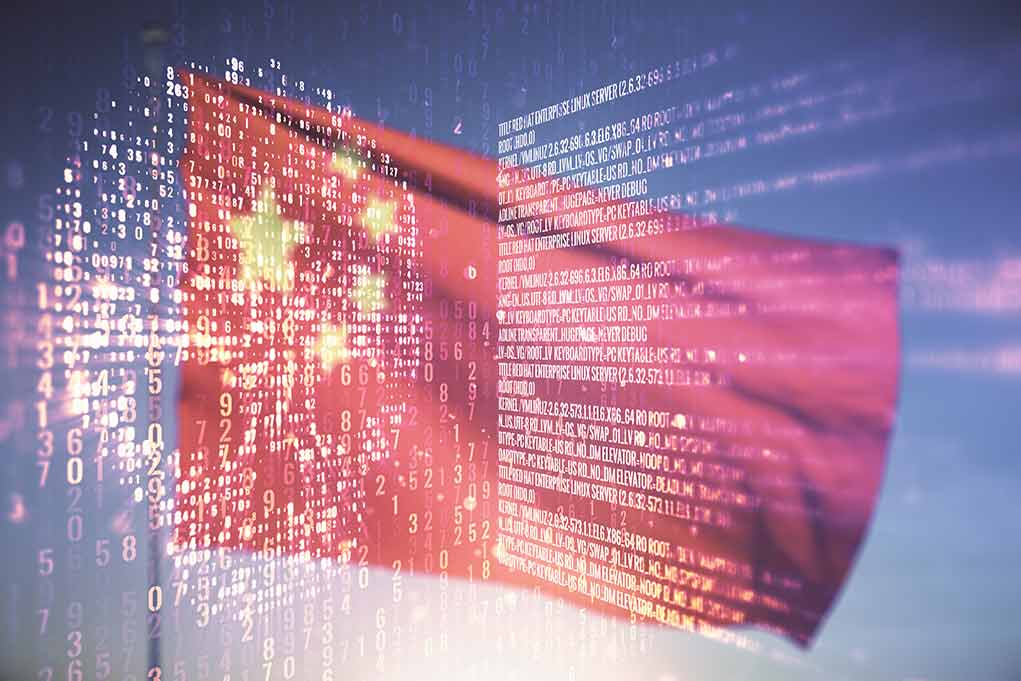
China’s quantum computing advances have U.S. intelligence experts warning of a “DeepSeek moment” that could compromise financial systems and state secrets within years.
Key Takeaways
- China’s accelerated quantum computing development may soon surpass U.S. capabilities, threatening American technological leadership, according to intelligence experts.
- The 2025 Defense Intelligence Agency threat assessment warns of imminent military applications of quantum technologies by rival nations, particularly in sensing and communications.
- Quantum sensors could potentially bypass traditional stealth technology and GPS systems, creating strategic vulnerabilities for the U.S.
- The convergence of quantum technologies with AI and microelectronics raises the risk of technological surprise in combat environments.
- U.S. government agencies are urged to modernize IT systems and implement post-quantum cryptography to protect against future quantum threats
China’s Quantum Ambitions Threaten U.S. Security
Intelligence experts are sounding the alarm over China’s rapidly advancing quantum computing capabilities. Denis Mandich, a veteran of the U.S. intelligence community, warns that China is “likely going to experience a DeepSeek moment in quantum computing,” referencing the sudden breakthrough in AI capabilities that could similarly occur in quantum technology. This advancement could potentially give China the ability to break encryption that currently protects financial systems and national security secrets, fundamentally altering the global security landscape.
The 2025 Defense Intelligence Agency threat assessment highlights that quantum technologies, particularly sensing and communications, are advancing faster than quantum computing itself. China and Russia are expanding quantum networks that use quantum key distribution, believed to be immune to conventional eavesdropping techniques. These developments signal a fundamental shift in military capabilities that could undermine traditional U.S. advantages in stealth technology and secure communications.
The Quantum Arms Race Intensifies
China’s quantum computing strategy combines aggressive investment, technology acquisition, and deliberate secrecy. “We don’t even know the names of the quantum companies in China. There are only a couple of them that are public. The rest of them are completely unknown,” warned Denis Mandich, Chief Technology Officer at Qrypt Inc., during recent congressional testimony. This lack of transparency complicates U.S. efforts to assess and counter Chinese quantum capabilities, creating a dangerous intelligence gap.
“The timeline is shrinking. The threshold is roughly four thousand logical qubits, and leading programs are racing toward that mark already. Delay is not just risky, it’s irrational. Progress in quantum computing is nonlinear and prone to sudden breakthroughs, and our adversaries have every incentive to conceal milestones until it’s too late,” said Denis Mandich, Chief Technology Officer at Qrypt Inc.
What makes China’s quantum advancements particularly concerning is their integration with other emerging technologies. The DIA report emphasizes the convergence of quantum technologies with artificial intelligence, electronic warfare, and microelectronics. This fusion creates multiplicative effects that could dramatically enhance battlefield capabilities, from navigation and communications to target recognition in complex combat environments.
America’s Quantum Response Strategy
The U.S. government is now racing to prepare for what experts call the “quantum age.” At a recent hearing of the Subcommittee on Cybersecurity, Information Technology, and Government Innovation, experts urged rapid modernization of federal IT systems and cybersecurity protocols. The focus has shifted to implementing post-quantum cryptography and developing quantum-resistant algorithms before China achieves quantum supremacy in critical applications.
“The United States needs to develop a strong quantum workforce to maintain its leadership position in quantum technology, hardware, and software development. In doing so, leveraging programs, training, and hiring are key. For example, education programs could provide the qualifications and skills needed to work in quantum technologies across both the public and private sectors. Second, the sustained investment is particularly important to advance these technologies,” said Marisol Cruz Cain, Director of Information Technology and Cybersecurity at the Government Accountability Office.
Beyond technology upgrades, American officials emphasize the need for investment in human capital. Building a quantum-capable workforce through specialized education programs and sustained research funding is critical to maintaining technological leadership. President Trump’s administration has prioritized quantum research as part of broader efforts to counter Chinese technological advancement, recognizing that quantum supremacy could fundamentally alter the global balance of power.
The Coming Quantum Disruption
While fully operational quantum computers capable of breaking current encryption standards aren’t expected this decade, the threat landscape is evolving rapidly. Experts warn that the nonlinear nature of quantum research means breakthroughs could occur suddenly and without warning. Mandich pointed to previous cybersecurity failures as cautionary tales, noting: “They have access to everything that we’ve ever done in all of our companies; all of our companies have been penetrated, as far as we know, many of their employees are in China.”
“Although select research areas, such as sensing, are advancing more rapidly, non-governmental experts indicate that development of a quantum computer capable of decryption is unlikely in this decade,” according to analysts.
Perhaps most concerning is the growing technological cooperation between China, Russia, North Korea, and Iran. This collaboration amplifies the threat to U.S. national security interests, creating a coalition of adversaries with complementary technological capabilities. As quantum technologies gradually integrate into critical systems worldwide, the balance of power in cybersecurity, surveillance, and military operations faces unprecedented disruption, demanding urgent and comprehensive countermeasures from American leadership.











